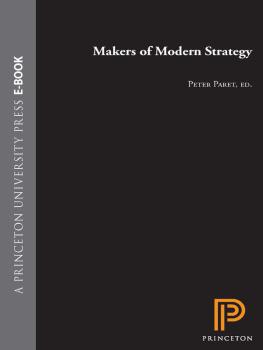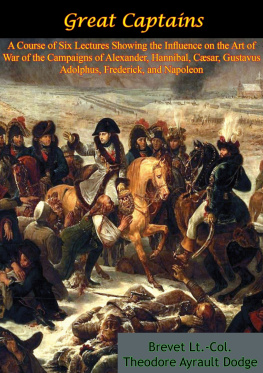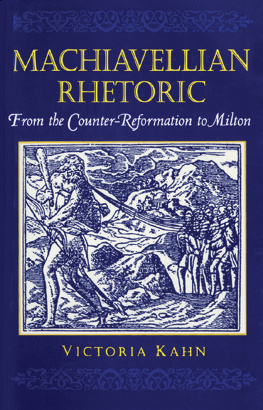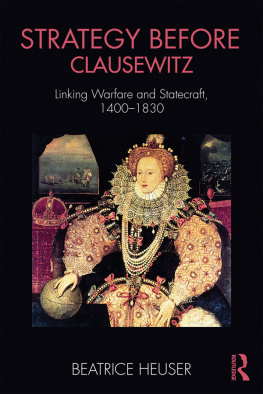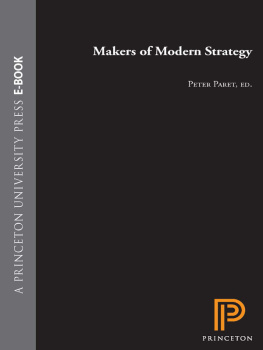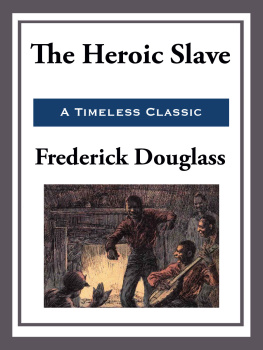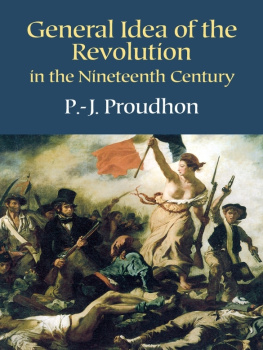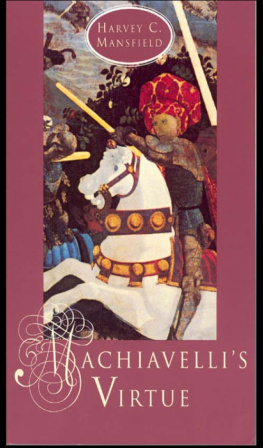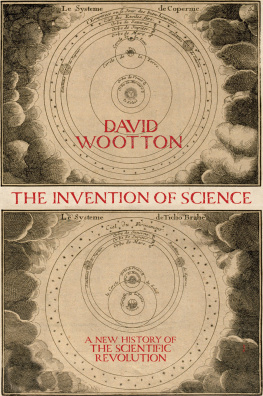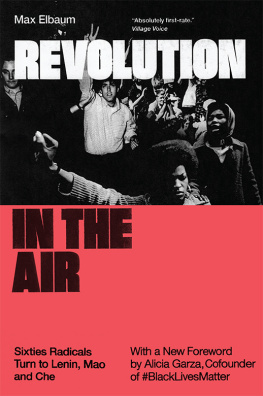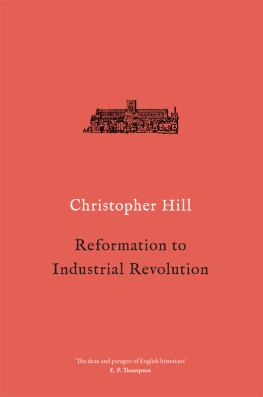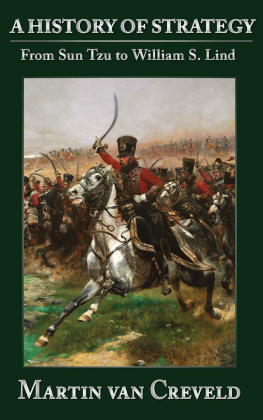THE EDITORS owe a debt of gratitude to the authors of this volume, who have made our task an unusually pleasant one. We also want to express our appreciation to Michael Howard, John Shy, and Russell Weigley for their advice in planning the book, to James E. King, whose criticism has been pertinent as always, and to Donald Abenheim for his assistance with the bibliographies. Loren Hoekzema, Elizabeth Gretz, and Susan Bishop of Princeton University Press saw the book through publication with exemplary intelligence and care. Rosalie West once again produced an index that is useful rather than impenetrable. To Herbert S. Bailey, Jr., Director of Princeton University Press, whose belief in the importance of the subject helped make the volume possible, go our special thanks.
Introduction
PETER PARET
C ARL VON CLAUSEWITZ defined strategy as the use of combat, or the threat of combat, for the purpose of the war in which it takes place. This formulation, which a modern historian has characterized as both revolutionary and defiantly simplistic, can be amended or expanded without difficulty. Clausewitz himself, setting no great store in absolute definitions, varied the meaning of strategy according to the matter at hand. Strategy is the use of armed force to achieve the military objectives and, by extension, the political purpose of the war. To those engaged in the direction and conduct of war, strategy has often appeared more simply, in Moltke's phrase, as a system of expedients. But strategy is also based on, and may include, the development, intellectual mastery, and utilization of all of the state's resources for the purpose of implementing its policy in war. It is in both of these sensesthe narrower, operational meaning, and its broadly inclusive implicationsthat the term is used in this volume.
Strategic thought is inevitably highly pragmatic. It is dependent on the realities of geography, society, economics, and politics, as well as on other, often fleeting factors that give rise to the issues and conflicts war is meant to resolve. The historian of strategy cannot ignore these forces. He must analyze the varied context of strategy, and the manner in which context and ideas act on each other, while he traces the development from idea to doctrine to implementation, a progression that in turn will give rise to further ideas. The history of strategic thought is a history not of pure but of applied reason. Consequently the essays in this volume go far beyond theory and touch on many of the military and nonmilitary factors that help shape war. In a variety of ways they demonstrate the close interaction of peace with war, the links between society and its military institutions and policies; but the thread of strategic thought runs through them all. The essays explore ideas of soldiers and civilians since the Renaissance on the most effective application of their society's military resources: how can the fighting power available, or potentially available, be used to best purpose? Having addressed these ideas, the essays turn to the further issue: what impact did strategic theory have on wars and on the periods of peace that followed?
I
The concept of this volume, and some of its substance, derive from an earlier work. In 1941 Edward Mead Earle organized a seminar on American foreign policy and security issues for faculty of the Institute for Advanced Study and Princeton University. The seminar led to a collection of twenty-one essays on military thought from Machiavelli to Hitler, which Earle, assisted by Gordon A. Craig and Felix Gilbert, brought out two years later under the title Makers of Modern Strategy. One of the striking features of this book was the confidence of its editors and authors that in the midst of a world war the history of strategic thought deserved serious and wide attention. In their eyes, the trials of the present did not diminish the significance of the past. On the contrary, history now seemed particularly relevant. In his introduction, Earle declared that it was the purpose of the book to explain the manner in which the strategy of modern war developed, in the conviction that a knowledge of the best military thought will enablereaders to comprehend the causes of war and the fundamental principles which govern the conduct of war. He added, we believe that eternal vigilance in such matters is the price of liberty. We believe, too, that if we are to have a durable peace we must have a clear understanding of the role which armed force plays in international society. And we have not always had this understanding.
The impact on these words of the condition in which they were written is apparent. A society that until recently had paid little attention to events beyond its borders was now fighting in the greatest war of all time. A new interest in learning about war, about matters that had been ignored but that now dominated public life, even an interest in gaining some kind of historical perspective not only on the political and ideological but also on the military elements of the conflict, might be expected. And as much a part of the atmosphere in which the essays were written was the belief not alone in the need but also in the possibility of a citizenry that understood the determining realities of war. Makers of Modern Strategy was a scholarly contribution from the arsenal of democracy in the best sense of that contemporary term; a serious and fundamentally optimistic response to important intellectual needs of America at war and at the threshold of world power.
It was a further remarkable aspect of the book that its wartime origin and mission did not compromise its scholarly objectivity. Its contents varied in quality, although the general level was very high, but none of the essays was marred by chauvinism or denigrated current enemies; even essays on Japanese Naval Strategy and The Nazi Concept of War maintained an exemplarly intellectual honesty. No doubt that is one reason for the collection's continued success, decades after the war ended. The book has now provided two generations of readers with a rich fund of knowledge and insight; for some, very likely, it has been their only encounter with the sophisticated study of war, as opposed to its drum-and-bugle variety.

